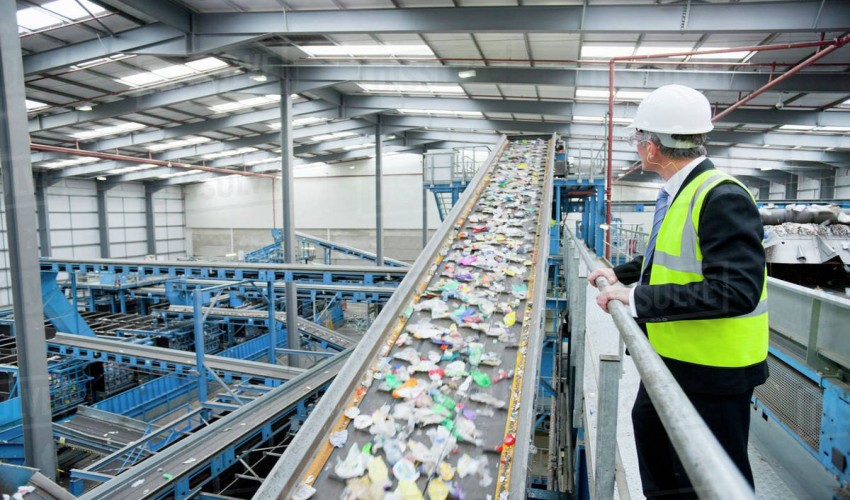
Plastic Engineering / Technology
Plastics engineering encompasses the processing, design,
development, and manufacture of plastics products. A plastic is a polymeric
material that is in a semi-liquid state, having the property of plasticity and
exhibiting flow. Plastics engineering encompasses plastics material and plastic
machinery. Plastic Machinery is the general term for all types of machinery and
devices used in the plastics processing industry.The nature of plastic
materials poses unique challenges to an engineer. Mechanical properties of plastics
are often difficult to quantify, and the plastics engineer has to design a
product that meets certain specifications while keeping costs to a minimum.
Other properties that the plastics engineer has to address include: outdoor
weatherability, thermal properties such as upper use temperature, electrical
properties, barrier properties, and resistance to chemical attack.
In plastics engineering, as in most engineering disciplines,
the economics of a product plays an important role. The cost of plastic materials
ranges from the cheapest commodity plastics used in mass-produced consumer
products to the very expensive, specialty plastics. The cost of a plastic
product is measured in different ways, and the absolute cost of a plastic
material is difficult to ascertain. Cost is often measured in price per pound
of material, or price per unit volume of material. In many cases however, it is
important for a product to meet certain specifications, and cost could then be
measured in price per unit of a property. Price with respect to processibility
is often important, as some materials need to be processed at very high
temperatures, increasing the amount of cooling time a part needs. In a large
production run cooling time is very expensive.
Plastics are a wide range of synthetic or semi-synthetic organic compounds that are malleable and so can be molded into solid objects.
Plasticity is the general property of all materials which
can deform irreversibly without breaking but, in the class of moldable
polymers, this occurs to such a degree that their actual name derives from this
specific ability.
Plastics are typically organic polymers of high molecular
mass and often contain other substances. They are usually synthetic, most
commonly derived from petrochemicals, however, an array of variants are made
from renewable materials such as polylactic acid from corn or cellulosics from
cotton linters.
In developed economies, about a third of plastic is used in
packaging and roughly the same in buildings in applications such as piping,
plumbing or vinyl siding. Other uses include automobiles (up to 20% plastic),
furniture, and toys In the developing world, the applications of plastic may
differ—42% of India's consumption is used in packaging. Worldwide, about 50 kg
of plastic is produced annually per person, with production doubling every ten
years.
Plastics have many uses in the medical field as well, with
the introduction of polymer implants and other medical devices derived at least
partially from plastic. The field of plastic surgery is not named for use of
plastic materials, but rather the meaning of the word plasticity, with regard
to the reshaping of flesh.
The world's first fully synthetic plastic was bakelite,
invented in New York in 1907, by Leo Baekeland who coined the term 'plastics'.
Many chemists have contributed to the materials science of plastics, including
Nobel laureate Hermann Staudinger who has been called "the father of
polymer chemistry" and Herman Mark, known as "the father of polymer
physics".
- Transforms and Partial Differential Equations
- Environmental Science and Engineering
- Materials Engineering
- Organic Chemistry and Technology
- Strength of Materials
- Polyurethane Technology
- Polymer Nanocomposites
- Adhesives and Surface Coatings
- Biomedical Plastics
- Statistical Quality Control Techniques
- Total Quality Management
- Probability and Statistics
- Mould Manufacturing Engineering
- Polymer Structure and Property Relationship
- Principles of Chemical Engineering
- Physical Chemistry of Polymers
- Numerical Methods
- Polymer Rheology
- Polymerization Engineering
- Plastics Processing Technology
- Fundamentals of Plastics Mould and Die Design
- Rubber Technology
- Plastics Testing Techniques
- Process Control & Instrumentation
- Additives and Compounding
- Polymer Composites Technology
- Industrial Management & Costing
- Plastics Product Design
- Plastic Waste Management and Recycling Techniques
- Biodegradable Polymers
- Mechanics of Machines
- Fundamental of Chemical Engineering Operations
- Physical Chemistry
- Basics of Polymers
- Rubber Material
- Polymer Science Laboratory
- Machine Drawing
- Plastics materials
- Polymer physics
- Rubber Compounding
- Rubber Processing and Machinery
- Latex Technology
- Engineering Plastics and Rubber
- Physical Testing of polymers
- Plastics Processing and Machinery
- Product Design and Engineering Applications of Polymer
- Computer-Aided Product Design
- Design and Drawing of Moulds and Dies
- Professional Ethics and Human Values
- Technology of Tires and Tubes
- Polymer Composites
- Polymer Recycling
- Multiphase Polymer Systems
- Rubber machinery
- Plastics Machinery
- Polymer Components in Automotive Applications
- Product Design and Cost Estimation
- Purchasing and Materials Management
- Management Science
Recent Published
Submit Manuscript
To give your manuscript the best chance of publication, follow these policies and formatting guidelines.


